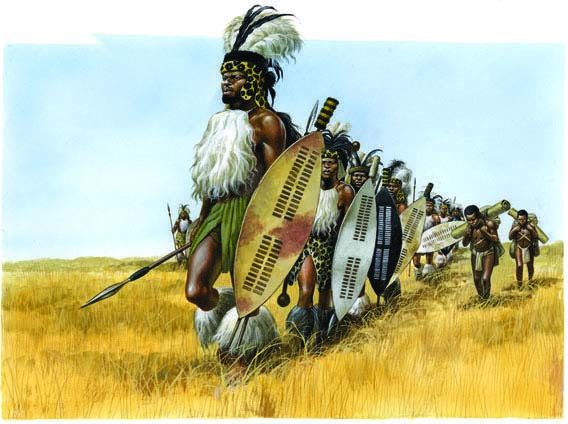The Nguni/Sotho People who occupied parts of modern-day Zimbabwe before Mzilikazi

By Thomas Sibanda
There is a general misconception that King Mzilikazi and is Ndebele people were the first Nguni group to traverse and settle in what is now modern-day Zimbabwe. However, this is not accurate.
The evolution of the Ndebele can be divided into 2 phases: 1.1820-1840 was dominated by migration and wars. 2. 1841-1893 saw the Ndebele evolving to a new full-fledged settled heterogeneous state in present day Matabeleland & parts of Midlands in Zimbabwe.
During the political revolutions that rocked Nguniland commonly referred to as mfecane there are various Nguni and Sotho-Tswana groups that migrated north and traversed through the Zimbabwean plateau.
These Nguni and Sotho-Tswana groups included the Sotho of Mpanga, the Sotho of Sebetwane, the Nguni of Ngwana Maseko, the Nguni of Zwangendaba, the Nguni of Nxaba, the Shangani of Soshangane and the Swati of Nyamazana.
This coincided with the nearing of the collapse of the Rozvi/Lozwi empire due to power struggles and weak leadership. The group led by Zwangendaba is accused of destroying the structures and settlements at Great Zimbabwe.
These groups earned the name ‘madviti’/plunderers/usurpers from the local Shona people groups who were affected by the raids and destruction of their settlements and traditional shrines like the great stone structures in Masvingo.
Soshangane also invaded the Zimbabwean plateau and established the Gasa/Gaza empire which stretched from the Limpopo River in southern Mozambique up to the Zambezi River in the north. Soshangane invaded the Rozvi in Chipinge area thus accelerating the state collapse.
Soshangane established his capital in the highlands of the middle Save River in the Zimbabwean plateau in the 1830s. The capital was later moved by his grandson Ngungunyane Mdungazwe Nxumalo to Mozambique. The Gasa/Gaza empire was overthrown by the Portuguese in 1897.
Zwangendaba continued with his trek until he settled in Tanzania in Mapupo, near Ufipa where he consolidated his status as the king of all the Ngoni located accross Southern Africa.
After leaving a trail of destruction to the Rozvi/Lozwi Empire, Sebetwane moved to present day western Zambia where he established his Barotseland kingdom.
Queen Nyamazana Dlamini who was Zwangendaba’s niece defeated the last Rozvi/Lozwi king Mambo Chirisamhuru marking the epilogue of the Rozvi/Lozwi empire in the 1830s.
She thereafter gathered her Swati people and remnants of the Nguni and Sotho Tswana groups that remained under her leadership to establish her authority over the new territory she had taken over.
When the Ndebele under Mzilikazi arrived around 1840 they settled in the southwestern parts of modern-day Zimbabwe close to where Falcon College is located.
Mzilikazi met with Queen Nyamazana and the two agreed to coexist in peace in the territory. Mzilikazi then made a second proposal to strengthen their ties by marrying Queen Nyamazana. She accepted his offer, merged her people with his and handed Mzilikazi authority as King.
Mzilikazi used the policy of raiding the surrounding Shona, Tswana (Botswana) and Lozi (Zambia) groups who refused to pay tribute to him. This was his strategy of building his kingdom and enforcing his authority and political control of the new territory that he occupied.
SOURCES:
Zimbabwe’s Cultural Heritage: Phathisa Nyathi – Building friendships between the Shona and Ndebele of Zimbabwe
Cyprian Muchemwa (PhD Thesis /Durban University of Technology) – Lexicographical Practice and Lexicological Research: The Case of Shangani in Zimbabwe
Peniah Mabaso, -Re-thinking the Colonial Encounter in Zimbabwe in the Early 20th Century.
Prof. S J. Ndlovu- Gatsheni – The Ngoni of Malawi (A History Revisited)
Sunduzwayo Madise -Becoming Zimbabwe. A History from the Pre-colonial Period to 2008: Brian Raftopoulos, A. S. Mlambo -The Ndebele Nation: Reflections on Hegemony, Memory and Historiography: Prof. S. J Ndlovu – Gatsheni






